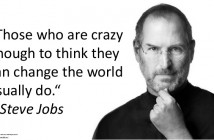The term ‘Bible engagement’ can mean vastly different things to different leaders. To some it means that their young people are familiar with the key Bible stories, or have memorized appropriate Bible passages, or maybe that they know where the different books in the Bible are located.
To other leaders, it’s important that their young people understand the bigger biblical narrative, and how all the stories in the Bible fit within a much bigger story. Many leaders see a hallmark of healthy Bible engagement in the sorts of questions their young people are asking, ie: thought-through, challenging questions that defy easy answers.
As I’ve spoken with youth leaders around the world about their understanding of Bible engagement, and specifically around what ‘healthy’ Bible engagement looks like in practice, I’ve put together 5 elements that can enable a young person to encounter Scripture in life-giving ‘healthy’ ways.
Healthy Bible engagement can happen when we approach Scripture in community; prayerfully; as narrative; contextually, and humbly.
Let me dig into each of these a little more
In community
We often see personal Bible reading as being ‘the goal’ when it comes to engaging young people with Scripture. According to research we conducted here in Australia, young people are 10 times more likely to engage deeply with Scripture if they are involved in a peer group, with a leader who acts as a mentor for them.
Cultivating healthy communities means being intentional in building a culture of inclusiveness, where young people can bring their hard questions, personal stories, opinions and experiences of the Bible to the group. If young people feel safe, and able to be vulnerable, it’s a huge step for them to also engage deeply with Scripture.
Prayerfully
When we humbly invite the Holy Spirit to guide us and speak to us as we engage Scripture, we intentionally make room for God to speak to us. We also acknowledge that God speaks to people differently, and in that diversity we can collectively hear from God in new and surprising ways.
I find it really encouraging to hear from people who talk of how God just speaks to them like a quiet voice in their head as they read and reflect on a Bible passage, because that’s not how God seems to ‘speak’ to me. It tends to be as I read a passage multiple times with someone else, and particular words or phrases seem to stand out to me. I came across this quote from an unknown source that I find really affirming: ’The Scriptures become the life-giving Word only when God’s spirit energizes the person reading them.’
As narrative
I get some interesting responses from both young people and leaders when I ask them ‘what IS the Bible?’ It’s rare that I get a response that speaks of the Bible as an over-arching story of God and his creation, or of all the stories in the Bible fitting into a much bigger narrative.
Its actually not a question that gets asked often, and most of the responses focus on the Bible being a series of mostly random stories, or of the Bible being a book that shows us how to live, or who God is. If we can read the different parts of Scripture mindful of the over-arching narrative, it enables us to see where the ‘parts’ we’re reading fit into the ‘whole’ story. It helps us see what God is doing at that point in the biblical story – whilst being aware of what’s happened before and what’s about to happen.
Contextually
Understanding some of the culture and context of the stories and characters in Scripture enable us to makes sense of it, and appreciate it in its original context. This can be done by drawing on the works of different Bible scholars, and asking simple questions of the text, like:
- What genre is this particular book (ie: Wisdom, Prophetic, Poetry, Law)? Who wrote this, and whom were they writing to?
- What were they addressing (ie: a particular event, a cultural issue etc)
- How would the original reader/hearer have understood it?
- Mindful of all this, what might God be saying to us today?
Honestly
We all bring different ‘lens’ to Scripture: things like our gender, age, family context, life experiences, location and upbringing all shape how we interpret and find meaning in Scripture. Being mindful of – and checking on – those bias’ can help us see and hear new things as we engage with Scripture, and learn from others different to us.
I grew up in a conservative, church-going family, and had a very stable childhood. That shapes the way I interpret Scripture. When I recently sat with a friend from northern Africa, who daily faces threats to his life for being a Christian, it was refreshing – and challenging – to hear his interpretation of different passages, simply because of his life situation and experience.
Acknowledging that there is much that we don’t – and won’t ever – understand is important, and enables us to deal with the tension that can come with unanswered questions.
What does ‘healthy Bible engagement’ look like for you in your context? What elements would you add to these 5, or what would you change? Give us your feedback below…
Article written by Adrian Blenkinsop, Bible Society Australia. Click here to read more of Adrian’s blogs.




